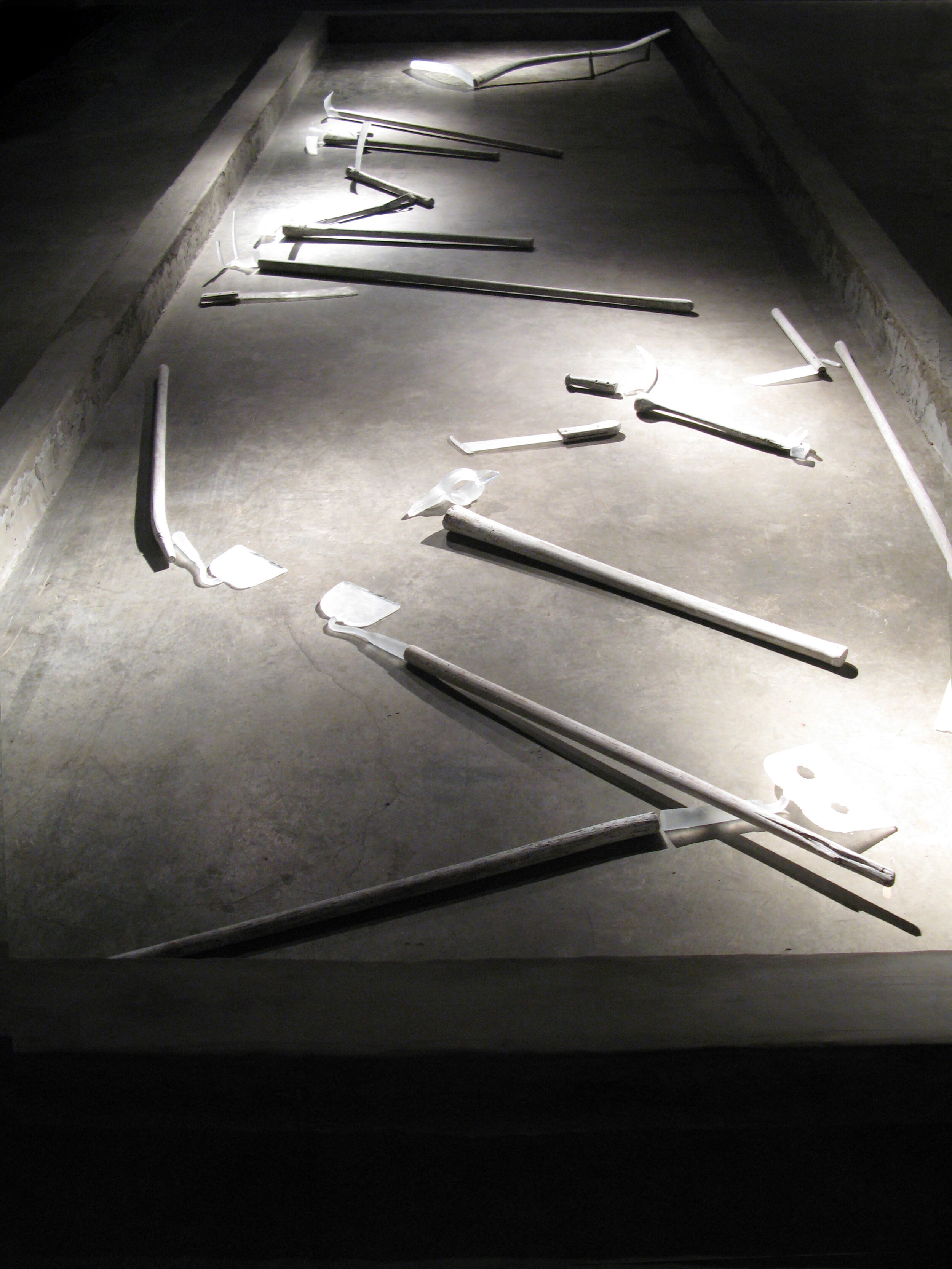TILL 2007
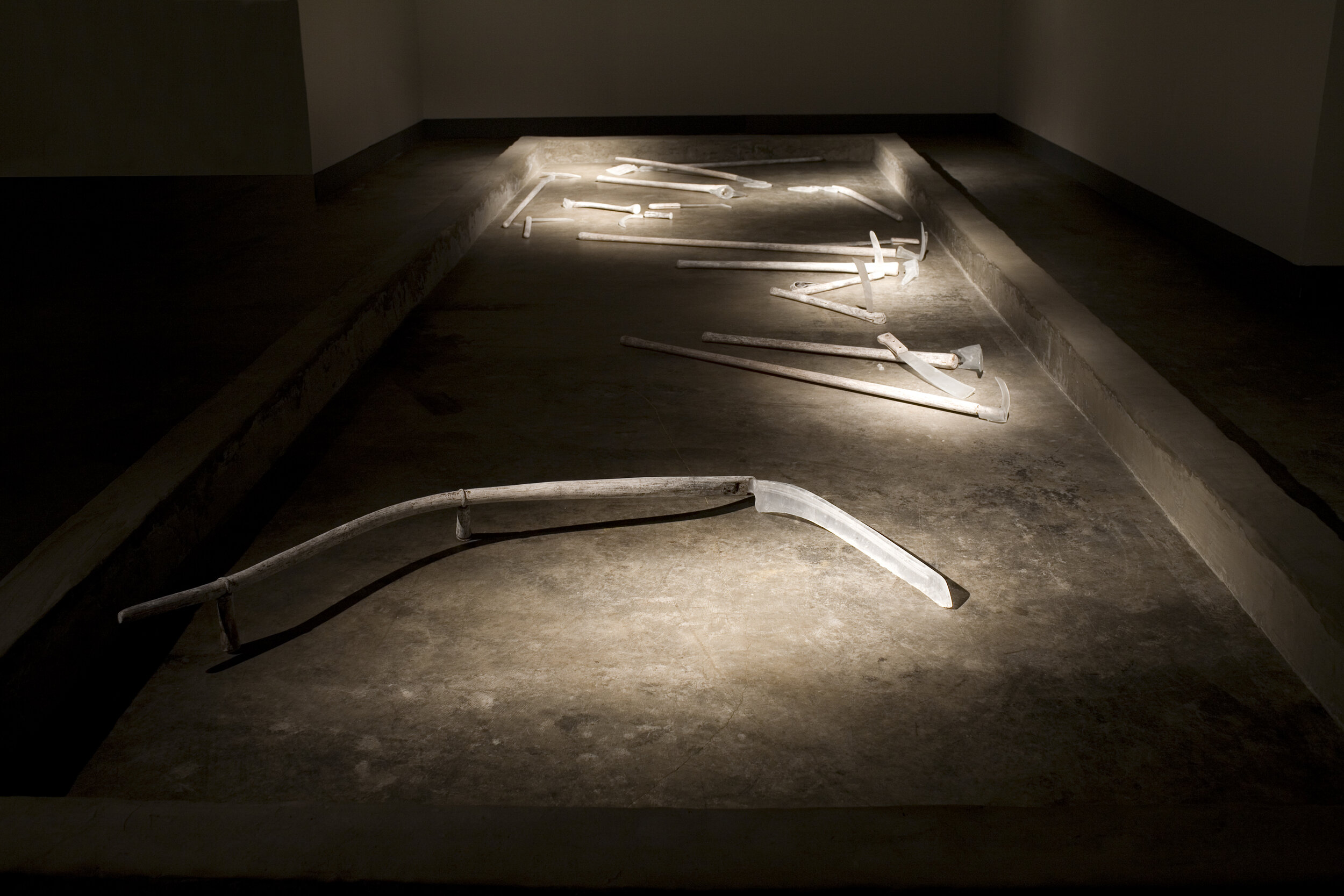
TILL 2007
Chalked vintage tool handles, cast glass, concrete
TILL is a collection of full-scale agricultural tools (hoes, scythes, sickles, machetes, pick axes, etc.) with their heads or blades cast in glass. With their bleached, detached wooden handles, they are framed by a low rectilinear cement barrier affixed to the floor on which they are arranged.
The title plays with at least three connotations: the temporal associations of “till,” as in the preposition “until”; the verb referring to field labor as in “tilling the earth;” and the noun’s reference to a cash register, a locus of capital.
Apart from the socio-political associations discussed below, the work also suggests a gesture of aggression against the gallery and against minimalism itself, as the tools lay in wait to hack the ground on which they lay. Of course, contradictions abound, as these objects may also “fetishize” labor, neutering any functional or oppositional impulses. If wielded, the tools would break and crash upon impact; thus, the futility of aesthetic utilitarianism.
(text continues)
Premiered at Glassnost, Miller Gallery, Carnegie Mellon University, June 8 – July 13, 2007.
Pittsburgh Post Gazette Review, June 27, 2007
Casting assistants: Kim Chaplin of Goggleworks, Reading, PA and Norm Wright, Pittsburgh.
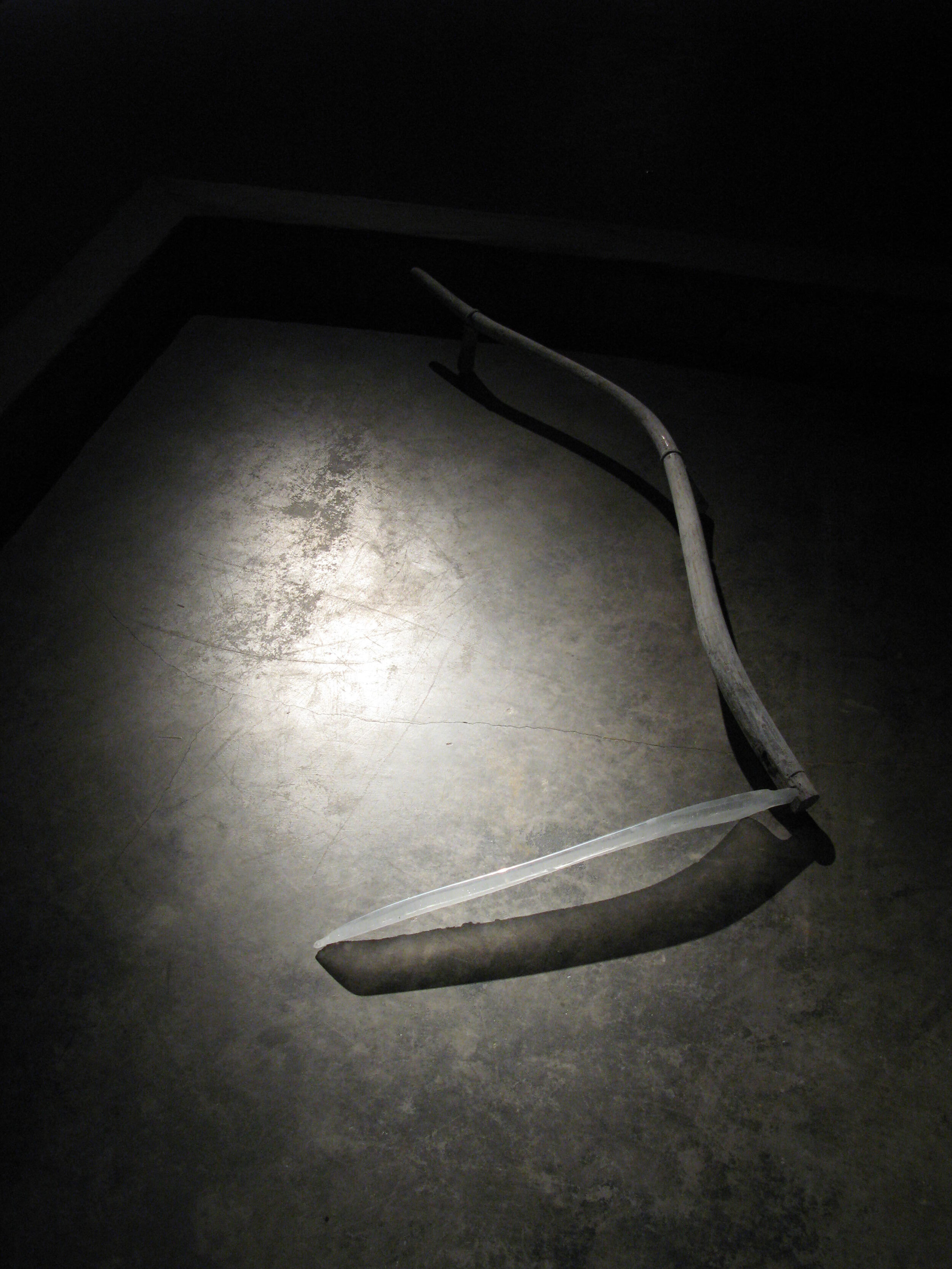
TILL: Scythe
Some relevant statistics and conditions at the time of TILL’s making: Three quarters of the world’s 1.2 billion extremely poor people live and work in rural areas. Western systems of measuring production are geared to mega-agribusiness corporations and cash crop profits rather than effective farming for local needs. The World Rural Women’s Day 2002 Background Paper and the IFAP Standing Committee on Women in Agriculture President’s Open Letter conclude that: the most efficient means of rendering the destruction of nature, local economies and small autonomous producers is by rendering their production invisible.
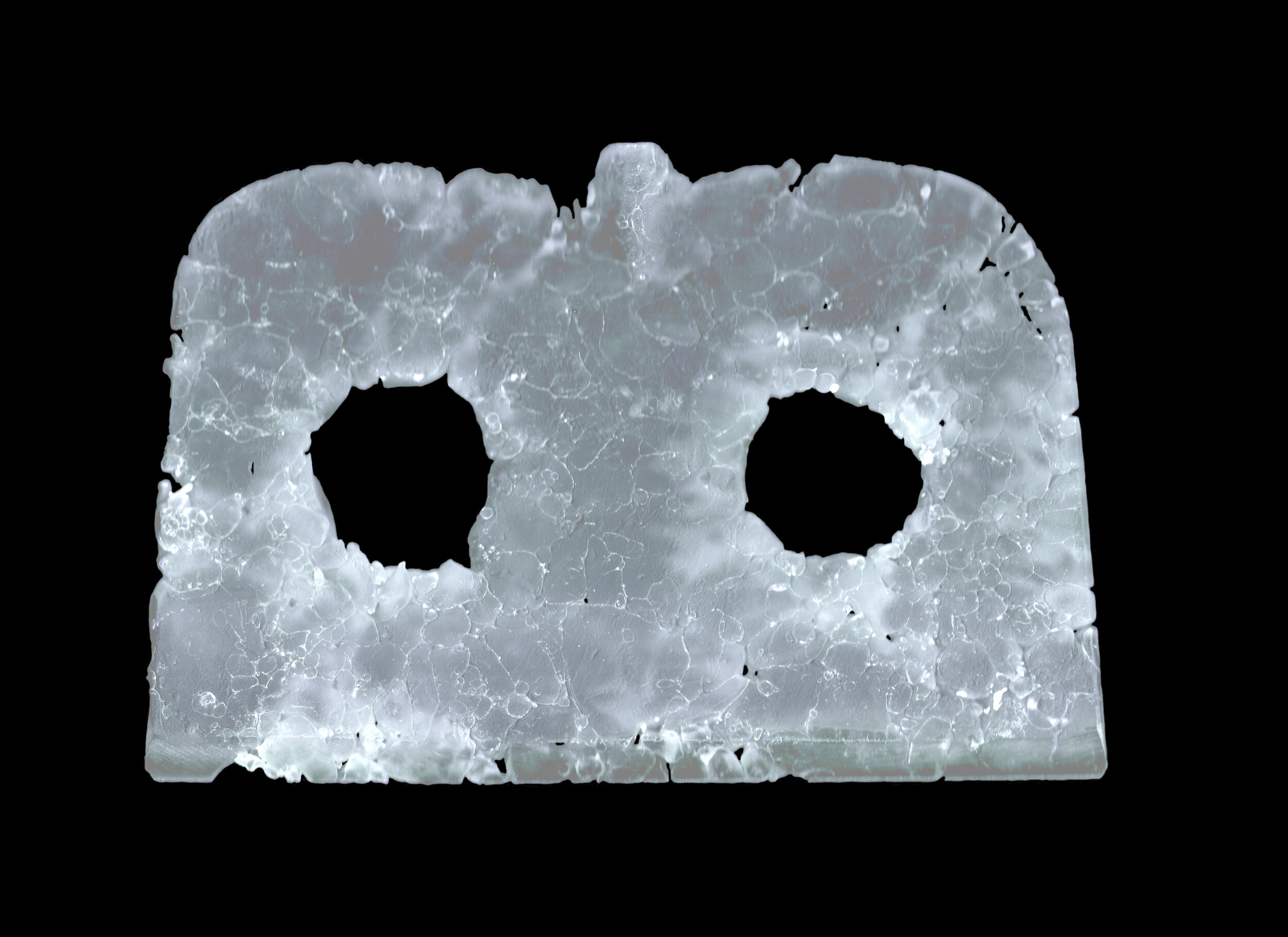
TILL: Hoe head
Vandana Shiva, winner of the 1993 Alternative Nobel Peace Prize (the Right Livelihood Award) for her work on globalization and poverty, exposes the invisible. The ghostly fragility and “invisibility” of Till’s instruments of production reflect the unacknowledged subsistence farmer. Unseen are the women who produce more than 50% of the food we eat. Unseen are the decreasing incomes of farmers and the doubling of food prices between 1999 and 2000. Unrecognized is the rise in food deprivation in rural areas and the resulting increase in mortality rates. Everywhere, food production is becoming a negative economy, with farmers spending more for industrial production than the price they receive for their produce. As debts rise in both rich and poor countries, farmers are literally killing themselves.* In the most bitter of ironies, they imbibe the very pesticides that they can ill afford and become ghosts of the land. Their absence is evoked by TILL’s dried out emaciated handles gathered like bones in a desert, their steel turned brittle and crystalline, like frosted death.
* 2300 farmers in the Vidarbha cotton belt of India have committed suicide since 2000. (Amelia Gentleman, “Despair takes toll on Indian farmers,” International Herald Tribune, May 31, 2006).
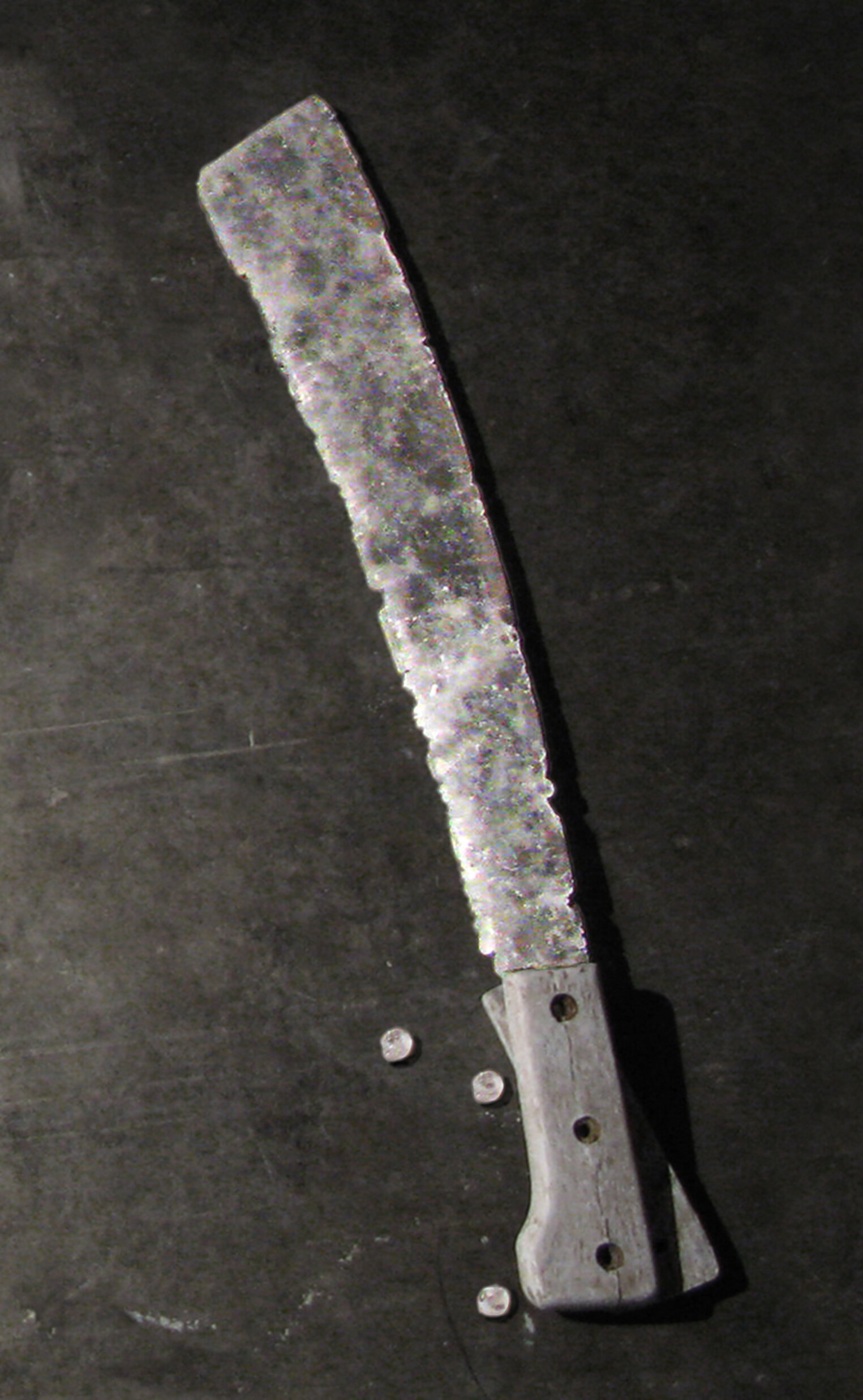
TILL: Machete
Invisibility and absence pervade as increased economic growth through global commerce is based on pseudo surpluses. More food is being traded while the poor are consuming less and literally disappearing. When growth increases poverty, when real production becomes a negative economy, something has gone wrong with the concepts and categories of wealth and wealth creation. The “till” becomes invisible in how it protects the speculators who are defined as “wealth creators” and in how it conceals their greed and its consequences.
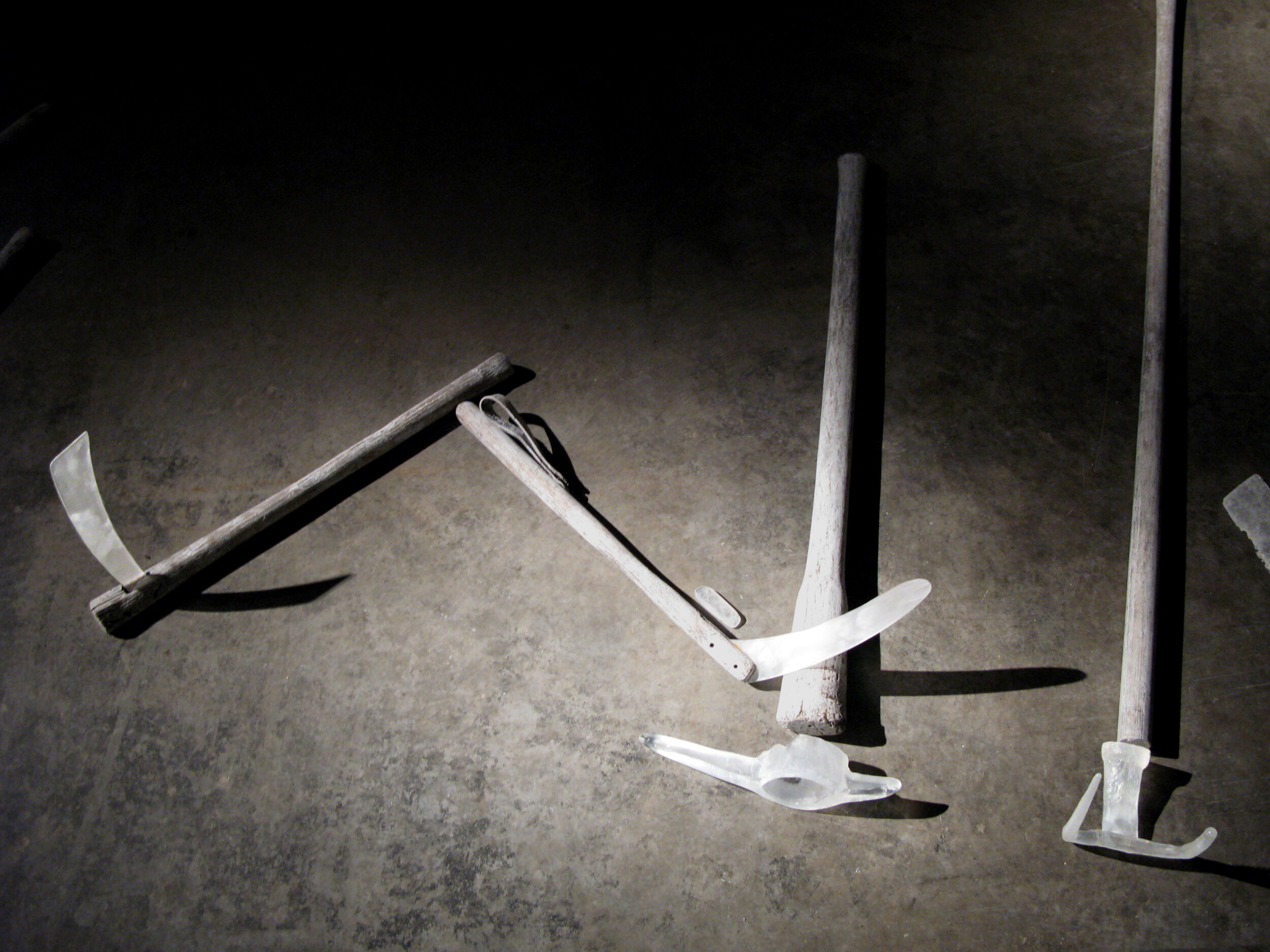
TILL
Detail of installation
Installed in at Glassnost, Miller Gallery, Carnegie Mellon University, June 8 – July 13, 2007
